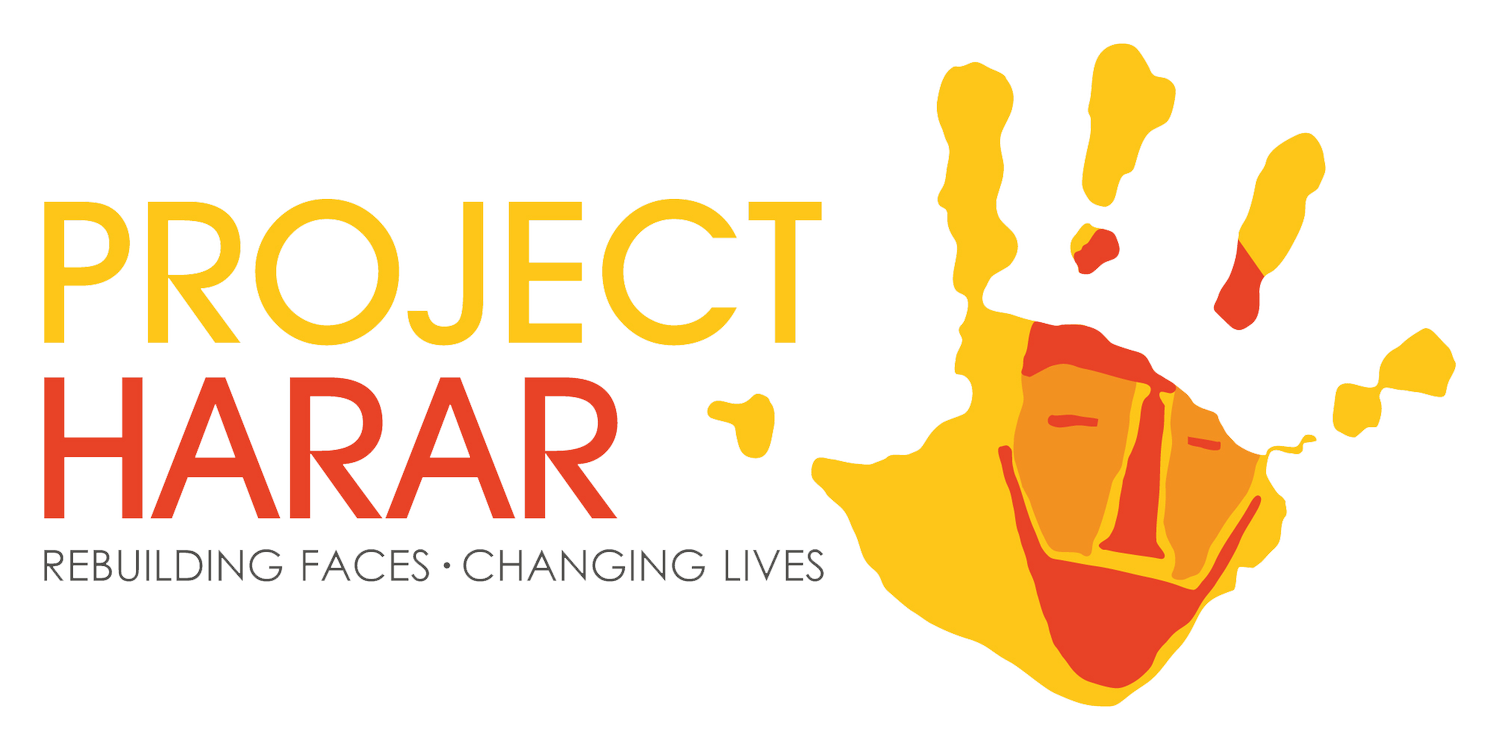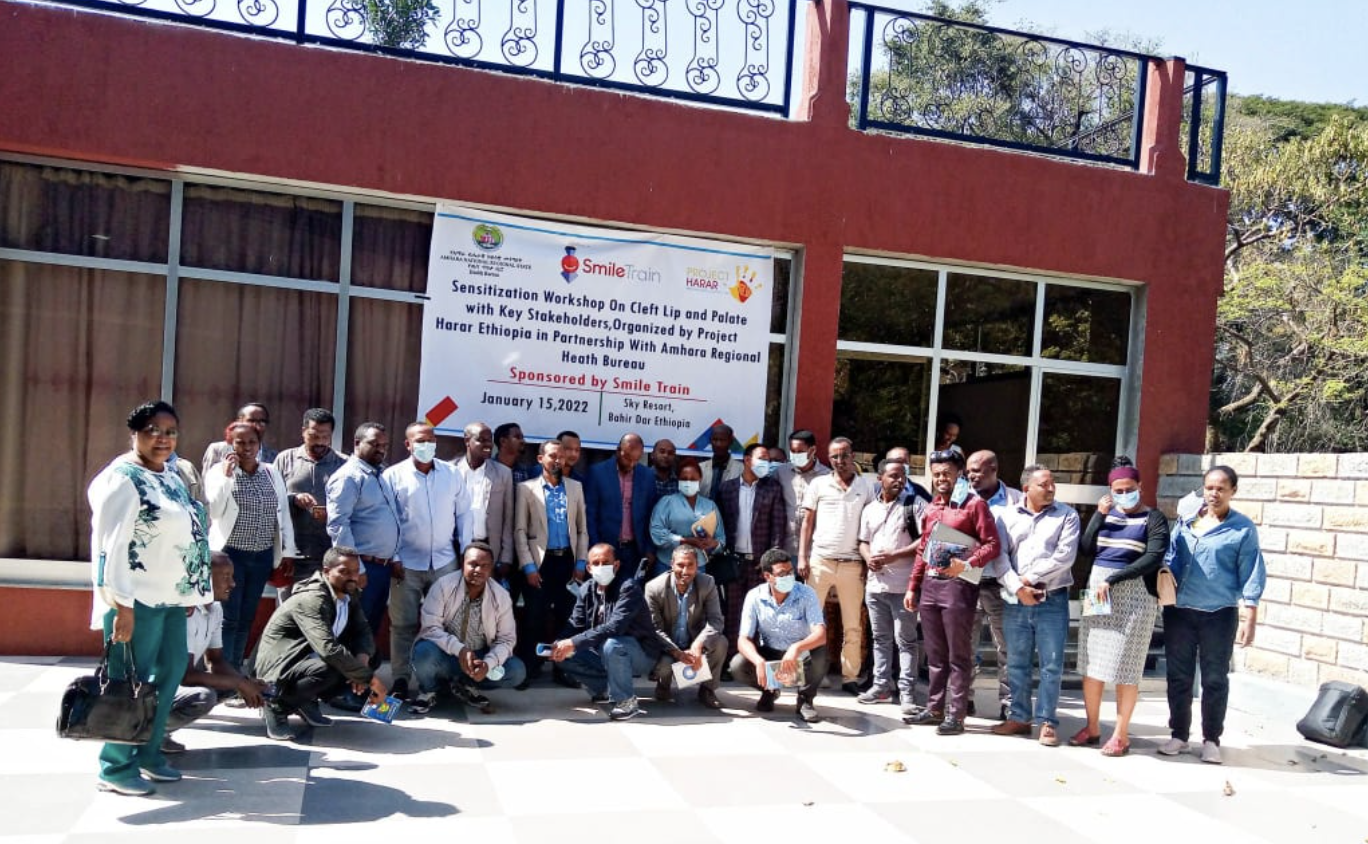Words into action: Over 100 families access treatment in March after awareness raising campaign
The Amhara region has been greatly affected by food insecurity, combined with the impact of civil conflict and the Covid-19 pandemic, vital health care services, such as those provided by Project Harar have been limited to those living in the region over the past 14 months. In January 2022 we set up a new awareness raising campaign, with the help of our clinical partner Smile Train. The impact of the campaign has meant over 100 families have been able to access vital cleft treatment in the region in the month of March.
About the Amhara region
The Amhara region is located in the north of Ethiopia, on the borders of Tigray and Addis Ababa. Just over a year ago, tensions in the Amhara and Tigray escalated. The lives of the people living in these regions have been greatly affected.
Civil war, combined with the threat and impact of the Covid-19 pandemic, has meant that the services we had been able to offer in the Amhara region in 2020-2021 has been limited. During this difficult period, the living circumstances for people living in the region has become very challenging. The natural environment of the region is prone to food insecurity, such as flooding and drought impacting crop production, but the conflicts have created a vacuum for resources. It is reported that 42% of young Ethiopians are living in homes with food scarcity. Access to cleft care, hospitals, speech therapists, food and other necessary resources had decreased for families accessing our services – this is a call for an urgent need of action.
Families waiting for cleft treatment in Debre Markos, Amhara Region, March 2022
What is Project Harar doing to help
In January 2022, Project Harar launched an awareness programme in partnership with our clinical partner Smile Train, to address the specific barriers to cleft care that were occurring in the Amhara region, with the aim of getting targeted messaging to families who were waiting to access cleft treatment and letting them know that treatment would soon be available to them.
We launched a workshop session, supported by Smile Train, to open discussions and raise awareness about tackling existing barriers and stigma in the health sector against cleft conditions. At the workshop, multiple solutions to these problems were presented to a room of government health leaders and coordinators, medical professionals, stakeholders, and media representatives. Issues, such as the drought-prone and chronically food insecure areas being heavily affected by the conflicts, cleft programmes needing to be adapted and implemented swiftly, were discussed by the moderators and attendees.
When tackling these huge issues, partnerships are so important, working together with NGOs, authoritative figures, media outlets and medical professionals to help raise awareness about cleft conditions – and to put plans of action into motion and helping people connect to our services.
Discussions ranged from topics such as how surgeons are transported to work on cleft programmes in the region and a need for Speech Therapy.
Words into action: Over 100 families access treatment in the Amhara Region in March
The success of our awareness raising programme meant that we were able to organise for over 100 families to travel to the city of Debre Markos, in the Amhara region for cleft lip or palate surgery in March 2022.
As well as the over 100 children who received treatment in March, an additional 150 families have been identified and registered.
Targeted awareness raising campaigns are so important for families in the most rural and remote areas. Due to limited health monitoring and information in these communities, families are often not aware that there is medical treatment available for their children. Collaborating with regional and local media outlets helps messages spread further - information about cleft conditions aired via the media starts conversations in communities, letting families know that they are not alone.
Help Project Harar continue to provide vital services to families so they can access cleft lip and palate treatment.
As well as addressing the barriers associated with the distance and cost of families in rural areas reaching treatment, we work year round to break down stigma around cleft conditions and spread positive and accurate information in rural communities.





